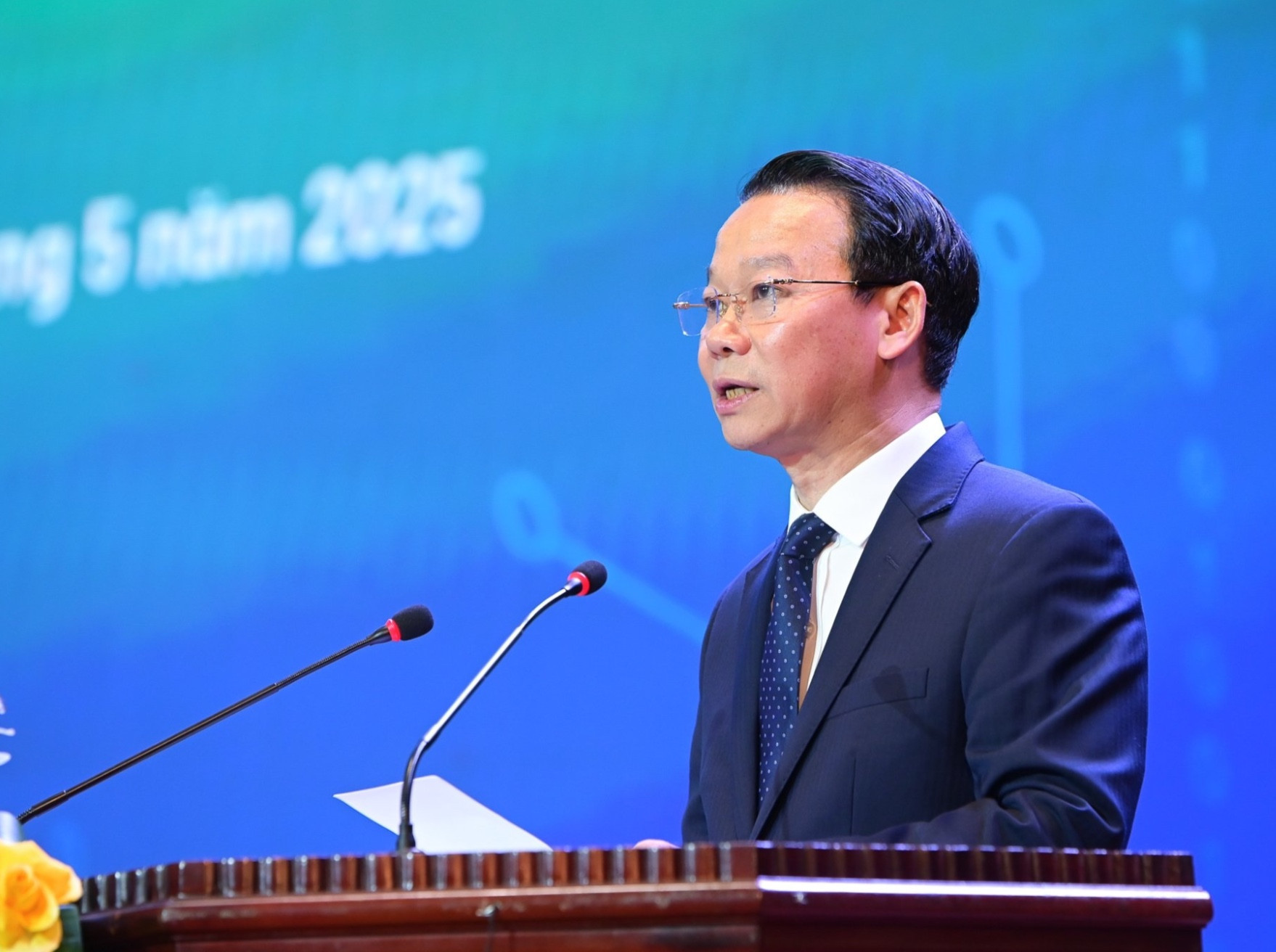Avoiding policy barriers to innovation
At the recent conference on implementing Resolution 57-NQ/TW held in Bac Ninh province, Minister of Agriculture and Environment Do Duc Duy emphasized that innovation and digital transformation are not just global trends, but also essential strategies for the agriculture and environment sectors to overcome growing challenges such as climate change, resource depletion, and green development demands.
To achieve sustainable development and modernization, he stressed that science and technology must be central to the transition.
Minister Duy also expressed concern that many current research projects remain disconnected from practical application, with limited potential for commercialization.
He attributed this primarily to rigid state-commissioning mechanisms that fail to reflect the actual needs of businesses and producers.

He proposed that starting in 2026, science and technology projects should be commissioned based on real-world needs from businesses and specialized agencies, rather than only research institutes.
“We must not let policy become a barrier to innovation. It is vital to dismantle institutional bottlenecks, expand technology testing mechanisms, and create pathways for ideas to move from the lab into real life,” he said.
Minister Duy also emphasized that digital transformation should be implemented comprehensively - from administrative processes to production activities. It must be seen not just as a tool but as a new operational method that enhances productivity, transparency, and governance in the agriculture and environment sectors.
Expanding demand-driven research commissioning

Dr. Phan Xuan Dung described Resolution 57 as a strategic breakthrough that reaffirms the State’s leadership role and the pivotal power of the intellectual community. He said that moving away from the restrictive mindset of “banning what cannot be managed” will unlock major opportunities for innovation models.
He stressed that the goal of bringing Vietnam into the top 50 countries in science and technology competitiveness is entirely achievable, particularly if the country harnesses the full potential of its human capital and market opportunities. He also highlighted the crucial role of agriculture and environment in sustainable development, noting that Vietnam is already among the top 15 global agricultural exporters.
On environmental issues, Dung emphasized that Vietnam must stay committed to economic development aligned with environmental protection by transitioning to a circular economy model. With nearly 4 million members, VUSTA serves as a hub for intellectual exchange and a catalyst for applied research movements.
He urged ministries and agencies to strengthen demand-driven research commissioning and to focus on communicating scientific knowledge to the public, especially in remote and rural areas.
High-quality human resources are key to digital transformation

Nguyen Phu Tien, Deputy Director General of the National Digital Transformation Agency, stated that human capital - particularly talented individuals - is the cornerstone of successful digital transformation, innovation, and technological advancement. Resolution 57 identifies this as the core driver of productive forces and the modernization of production relations.
Following the issuance of Resolution 57, the government swiftly adopted Resolutions 03 and 71, laying out seven priority action areas - from leadership mindset reform to building robust science and technology infrastructure.
These measures are designed to deliver breakthrough goals: by 2030, Vietnam aims to be among the top 50 digital governments globally, lead ASEAN in AI, and have the digital economy account for 30% of GDP. By 2045, this figure should reach 50%, positioning Vietnam as a high-income developed nation.
Tien emphasized that these goals are unattainable without high-quality human resources. Therefore, leadership roles must be clearly defined and held accountable, with individuals capable of effectively applying and managing technology.
The Ministry of Science and Technology is drafting regulations to assign responsibility to leaders in digital transformation, aiming to foster innovation throughout the public sector.
He added that digital and AI infrastructure can only thrive on a broad knowledge base and policy mechanisms that are flexible enough to encourage innovation and accept risk.
Vu Diep